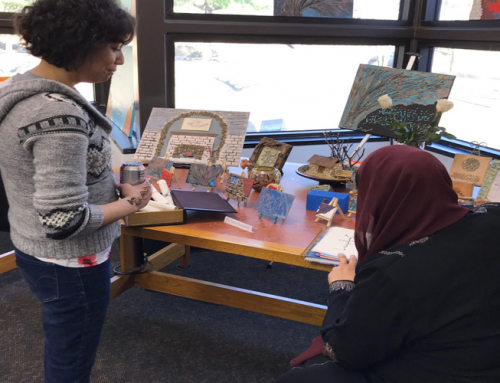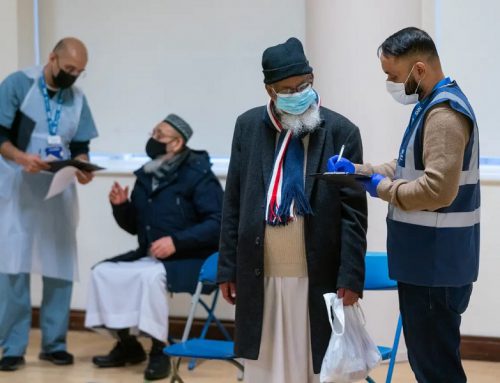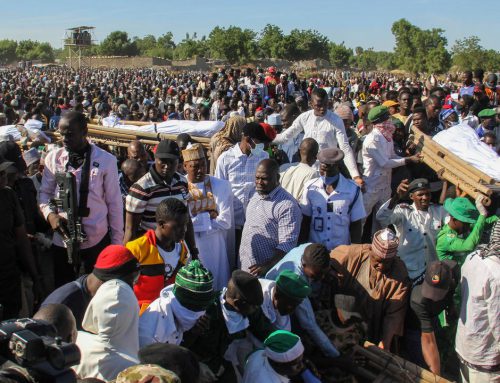The researcher of the Jihadi groups’ adopted principles and books is always faced with the fact that these principles have been originated by people enjoying no relation to the scholarly Islamic education. None of the jihadi books has been produced by a prominent Islamic scholar, recognized for his knowledge and capability of issuing fatwas (Jurist judgment). Most of the jihadi groups’ leaders, if not all, have neither been sophisticatedly educated, nor gone across the grades of obtaining Islamic sciences and acquire the tools of Ijtihad to claim the right of defending Islam, and setting juristic judgements. Their Fatwas, accordingly, have dragged, and still, Muslims into calamities, as if Prophet Muhammad (PBUH) describes them in his well-known hadiths: “Allah does not take away the knowledge, by taking it away from (the hearts of) the people, but takes it away by the death of the religious learned men till when none of the (religious learned men) remains, people will take as their leaders ignorant persons who when consulted will give their verdict without knowledge. So they will go astray and will lead the people astray”.
It is no surprise, then, for the Jihadi leaders to grant themselves the authority of issuing Fatwas pertaining people’s lives, and permitting detonating people at their markets, and mosques as if they are valueless beings. They, moreover, assign themselves spokespersons of religion. The emergence of such phenomenon accompanied with the audacity to religion is confronted with a vast contradictory model of the righteous Salaf when it comes to the conditions of Fatwa and Ijtihad. Our righteous Salaf used to spend a great deal of their lives for the sake of acquiring the qualifications of Fatwa and Ijtihad. Based on the Fatwa and Ijtihad conditions for the sake of which the Islamic scholars have exerted considerable effort to settle, and endorse, the inquirer of Jihadist-Salafism’s icons is going to be utterly surprised with their audacity to Islam, and pronouncement of Fatwas permitting bloodshed, without thorough knowledge or understanding of Islamic jurisprudence and Sharia.
The audacity of those leaders in issuing Fatwas reflect their ignorance of the basic principles of the Islamic jurisprudence and contradicts with righteous Salaf’ trend of considering carefully, sometimes avoid, pronouncing Fatwas. They were the most people to refrain from issuing Fatwas due to their fears of going wrong with religion. Ibn Laila said, “I have been contemporary to 120 companions of prophet Muhammad (PBUH); none of them preferred to pronounce Fatwas, but wised if another companion would carry this burden”. The great Imam Abu Hanifa has said, “Those passing juristic judgements, thinking that they would not be held accountable before Allah take themselves and Islam lightly. Of the same context, Sufyan ibn Uyaynah states, “The most properly knowledgeable of Islamic jurisprudence and Fatwa are the most to refrain delivering it, but the most ignorant of jurisprudence are the most to dare pronouncing it”. The wildly known story of the Imam Malik emphasizes the same sense. It narrates that a man came to Imam Malik requesting him to issue a Fatwa on a certain question. Imam Malik replied, “I do not know”. Then the unknown man said, “Come on Abu-Abdullah, how comes you don’t know?” Imam Malik confirmed, “Yes, I do not know, and communicate this to others that I do not know the rule of this question. On the other hand, Abu-Dawood describes the deep consideration of Fatwas, sometimes reservation, of his teacher Ahmed Ibn Hanbal, “I heard a lot of Fatwas from Ahmed Ibn Hanbal, but when it comes to controversial issues, he replies, “I do not know.”
I am putting the reader now before the degrees of the Jihadi-Salafi military leaders and theoreticians to let him/her infer how awful the intellectual disaster of this groups is:
|
Name |
Organization & position |
Educational level |
|
Osama Bin Laden |
Founder of al-Qaida |
B.A of Economics and Business Administration |
|
Ayman al-Zawahiri |
Current Al-Qaeda leaders |
Surgeon |
|
Abu Musab al-Zarqawi |
Leader of al-Qaeda in Iraq |
High school dropout |
|
Abu Bakr al-Baghdadi |
Leader of ISIL |
PhD of Islamic Studies or PhD of Education |
|
Shukri Mustafa |
The founder of Takfir wal-Hijra Group |
Agriculture Engineer |
|
Abu Ayyad al-Tunisi |
Leader of Ansar al-Sharia |
B.A of Law and Economic |
|
Abu Sayyaf Hapilon |
The leader of Abu Sayyaf Group |
Certificate in Engineering |
|
Abubakar Shekau |
Leader of Boko Haram |
Without educational level |
|
Kassim Rimi |
Leader of al-Qaeda in Yemen |
Without educational level |
|
Muhammad abd-al-Salam Faraj |
Jihadi Theorist |
Electrical Engineer |
|
Abou Qatada al-Filistini |
Theorist of Salafi Jihadist |
PhD Islamic Sciences |
|
Abu Hamza al-Masri |
Theorist of Salafi Jihadist |
Civil Engineer |
|
Omar Abdel-Rahman |
Theorist of Al-Gama’a al-Islamiyya |
Ph.D in Tafsir |
|
Mohamed Fizazi |
Theorist of Jihadist in Morocco |
Masters of Hadith Sciences |
|
El Khatib El –Idrissi |
Theorist of Ansar al-Sharia |
Nurse |
|
Abu Muhammad al-Maqdisi |
Theorist of Salafi Jihadist |
Dropout in his third years as student of sciences |
|
Abdullah Al-Rechud |
Theorist in al-Qaeda in Arabic Peninsula |
B.A Islamic Sciences |
|
Sayyed Imam |
Theorist of Salafi Jihadist |
Plastic Surgeon |
|
Khalid Sheikh Mohammed |
9/11 Attacks’ leader |
Bachelor of Science master’s degree in Islamic Culture and History |
|
Mohammed Atef Al-Masri |
Military chief of al-Qaida |
Agricultural Engineer |
|
Abu Ubaidah al-Banshiri |
Al-Qaeda leaders in Africa |
Police Man |
|
Nasir Abdel Karim al-Wuhayshi |
Leader of al-Qaeda in the Arabian Peninsula |
No educational level |
|
Saif al-Adel |
Leader in al-Qaeda |
Military Colonel |
|
Abu Zubaydah |
Osama Bin Laden’s senior lieutenant and counter-intelligence officer |
Engineer of Computer Science |
|
Abu Yahya Al-Libi |
Second man in Al-Qaeda |
No official education, spent 2 years in Mauritanian Bedouin schools |
|
Abu Omar al-Baghdadi |
Third Leader of Al-Qaeda in Iraq |
Police Brigadier |
|
Abu Hamza al-Muhajir |
Second leader of Al-Qaeda in Iraq |
M.A in Islamic Sciences |
|
Abu Musab al-Suri, |
Leader & theorist in al-Qaeda |
Mechanical Engineer |
|
Abu Omar al-Baghdadi |
leader of Al-Qaeda in Iraq |
Police Brigadier |
|
Atiyah Abd al-Rahman |
Leader in al-Qaeda |
Without educational level |
|
Saeed al-Masri |
Financial chief for al-Qaeda |
Without educational level |
|
Mamdouh Mahmud Salim |
Among the Founder of Al-Qaeda |
Communication Engineer |
|
Jamal Ahmed Mohamed al-Fadl |
Among the Founder of Al-Qaeda |
Solider |
|
Mohammed Loay Bayazid |
Among the Founder of Al-Qaeda |
Engineer |
|
Anwar al-Awlaki |
Leader of al-Qaeda in Arabic Peninsula |
Civil Engineer |
|
Atiyah Abd al-Rahman |
Leader in al-Qaeda |
Without educational level |
|
Saeed al-Masri |
Financial chief for al-Qaeda |
Without educational level |
|
Muhammad al-Zawahiri |
Leader in Jemaah Islamiyah of Egypt |
Engineer |
|
Abbud al-Zumar |
Leader in Jemaah Islamiyah of Egypt |
Intelligence Colonel |
|
Abdelhakim Belhaj |
Libyan Islamic Fighting Group |
Civil Engineer |
|
Abu Mohammad al-Julani |
Jabhat al-Nusra |
B.A in Media |
|
Abu Faraj al-Masri |
Senior leader in Jabhat al-Nusra |
Engineer of Computer Science |
|
Abu Firas al-Suri |
Leader in Jabhat al-Nusra |
Lieutenant in Syrian Army |
|
Abu Ali al-Anbari |
Top 6 leaders of ISIL |
Physics Teacher |
|
Abu Muslim al-Turkmani |
Top 6 leaders of ISIL |
Army Colonel |
|
Abu Muhammad al-Adnani |
Top 6 leaders of ISIL |
Without educational record |
|
Jihadi John |
Leader in ISIL |
B.A Information Systems |
|
Abu Waheeb |
Leader in ISIL |
Ungraduated computer science student |
|
Abu Noor al-Maqdisi |
Jund Ansar Allah |
Family Health Doctor |
|
Ahmed Abdi Godane |
Founder of Al-Shabaab |
B.A in Economics |
The table above crystalizes that none of the first six founders of Qaida is specialized in Islamic studies or Sharia. Despite of this fact, they do not abstain from issuing juristic judgments. Besides, only 3 out of 50 Jihadi-Salafi leaders hold PhD in one branch of Islamic studies; nevertheless, this degree does not qualify them or any other one to issue jurist judgments. 12 of them are engineers, 4 are doctors and nurses, 11 with no educational level, 8 of them from military background.
Let us juxtapose here the indiscretion and audacity of those leaders with the saying of the leading Imam Shafi’i pertaining the qualifications of Mufti. Imam Shafi’i states, “No one is qualified for making Qiyas (deductive analogy) except those possessing the tool of it: extensive knowledge of the Quranic rulings, including the obligatory rules, eloquence of Quran, abrogating and abrogated verses al-nāsikh wal-mansūkh, generalization and specification of the Quranic discourse, and the significance of verses. The interpretation of verses and inference of Fatwas must be in the light of Sunnah, if possible. In case Sunnah does not provide a response to the question at hands, the inference of judgements must be based on Ijmaa (consensus). The question then: what qualifications of Mufti do the Jihadi-Salafi leaders enjoy, and on which ground do they stand to drag Muslims to such calamities?
Upon what is mentioned before, I conclude that despite of the ignorance of Jihadi-Salafi leaders of the Quranic sciences, they have issued Fatwas on great matters, resulted in shedding the blood of thousands of innocent people, and this is the tip of the iceberg. For instance, the basic book of Qaida regarded as its constitution “al-‘Umda fi I’dad al-‘Udda (“The Essentials of Making Ready [for Jihad]”)” has not been composed by a renowned competent Islamic scholar who spent a great deal of his life in acquiring Islamic sciences, rather, by a plastic surgeon named Sayyed Imam El-Sharif. The telecommunications engineer Mamdouh Muhamud Salem, moreover, dares to pronounce the Fatwa of Tatarus (barricade), which permits and justify the killing of Muslim civilians and bystanders in the course of killing other non-Muslim enemies. He draws this inference based on a prior Fatwa attributed to Ibn Taymyyah, as if they have equal competence in the Islamic jurisprudence. Extremely shocking, the writer of the reference book of Qaida, “Jihad: The Forgotten Obligation” is the electronic engineer Muhammad abd-al-Salam Faraj. In other words, the book to which Qaida refer in order to justify their atrocities is ironically composed by someone who is not specialized in the Islamic Sharia and can’t even ….one verse of the Quran. In a striking contrast, the eloquent Arabian Qureshi Abu-Baker Al-Siddique (the most prominent companion of the prophet) abstains from interpreting a single word in Quran he does not know its meaning. When he was requested to explicate the verse, “And fruit and grass” (Quran: 80/31), he replied, “If I interpreted the words of Allah without knowledge, under which sky would I find shadow then? And above which land could I find shelter?” Moreover, Ali Ibn Abi Talib (The fourth Caliph in Islam) used to refrain from issuing Fatwas on daily life matters saying, “It is better for me to say I do not know when I am asked about matters I do not know their jurist rules”. Isn’t the audacity of those Jihadi leaders on delivering Fatwas is the situations that the prophets predicted 14 centuries ago in his famous hadith: “”Near the establishment of the Hour there will be days during which Religious ignorance will spread, knowledge will be vanishing (vanish i.e. by the death of Religious scholars) and there will be much Al-Harj, and Al-Harj means killing”. And the clear hadith that mentioned by Nu’aym ibn Hammad in book of Al Fitan reported by Caliph Ali, the fourth successor to Prophet Muhammad, describes these people as having long hair and bearing black flags. Their “hearts will be hard as iron,” and they would be the companions of a State, although the hadith from some points of view is not authentic, but isn’t talking exactly about ISIL and its alike.
*Dr.Tarik Ladjal is Professor of History at Effat University in Jeddah, Saudi Arabia.






